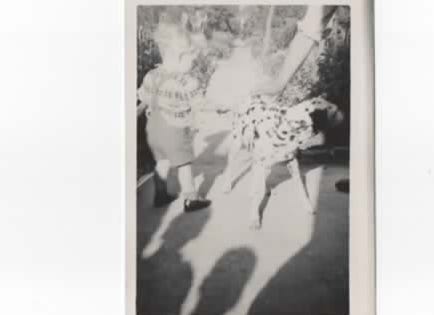My hippy hackles bristled. My libertarian timbers shivered. The marching song of the Soixante-huitards played upon my lips: “A bas les flics,” I murmured.
These autonomic responses were triggered by a notification from the Scottish Beekeepers’ Association, under the banner of the Scottish Government:
SCOTTISH GOVERNMENT CONSULTATION
Dear Stakeholder
Consultation on the introduction of a Scottish Fixed Penalty Notice scheme for Animal Health under the Animal Health and Welfare Act 1981
The Scottish Government has launched a consultation on the introduction of a Fixed Penalty Notice (FPN) scheme for animal health offences. We are seeking your views on specific proposals, including:
General characteristics of the scheme which including who should be empowered to issue FPNs and how they will be issued, how FPNs will be paid and the effect of doing so, and how FPNs can be appealed or withdrawn;
Penalty levels and amounts that should be applicable for the animal health FPN scheme, and the circumstances where the penalty amount could be increased or decreased;
A scale of harm which would introduce three additional scales of low, medium and high risk which would see their penalty reduced by 50% (low), or 25% (medium). The full penalty would be payable if considered high risk; and
The offences that meet the FPN criteria and proposals for the offences that should be included in the scheme when it launches
“Wtf?” pretty much covered my views on first reading. Does this mean that uniformed bizzies of the state are going to march onto my land dishing out tickets and fines like parking wardens? Am I going to be given an FPN because my wellies weren’t scrubbed and sprayed with disinfectant before I visited my hives? Am I in danger of acquiring a criminal record because I added a frame of comb from last year’s season to a brood box containing fresh frames? If the state is going to be policing standards of care in the apiary, I shall never be out of court.
The words of George H. W. Bush came to mind: “The most frightening words in the English language are ‘I’m from the government and I’m here to help you.’”
This initiative from the Scottish Government might actually be the development that puts the tin hat on my beekeeping. If state functionaries are going to be keeping me in line, the time may have come to pack it in, I reckon.
Part of the appeal of beekeeping for me has always been its freedom from regimented control and officious bureaucracy. As with sailing, you don’t have to sit a test or pay for a licence to embark on this pursuit. You take your own risks and let the consequences be on your own head. Once you acquire the kit and the bees, you’re on your tod. If your bees swarm and block the neighbour’s chimney, if they attack a passing child, if they all die (as happened with mine this year), it’s all on you, brother/sister.
If you want, you can join a club and submit to disciplined tuition or you can go your own way. It’s up to you whether you take lessons and sit exams or, if you choose, you can operate completely off-grid, unknown to any other beekeepers in your area. There is, at present, no law that requires you to register on the national bee records (BeeBase - NBU registration scheme | British Beekeepers Association). So far as we know, GCHQ are not tracking beekeepers’ WhatsApp exchanges about the incidence of varroa mite.
If that’s all about to change, if beekeepers are about to come under the ever-present eye of the state, I’m not sure I want to continue. As it stands, my plot is thickly hedged around with rules and by-laws.
The present panic about avian ‘flu has already delayed my plans to introduce hens and geese to my land for more than a year. In 2024, the Scottish Government introduced the Kept Bird Register under which everybody with poultry run – even half a dozen hens – has to make themselves known to the authorities.
In view of the dangers of cross-species infection, I can see the sense in this but it’s very far from how I want to live. I want to keep the spirit of my Uncle Jack alive on my land, not Winston Smith of 1984.
For 40 years, Uncle Jack worked nights in a ball-bearing factory in Chelmsford and, in the afternoon, he meticulously tended the long narrow garden behind their house. He always kept a few hens and a couple of geese. When we went to stay with him and Auntie Elsie, he would always present us with a dozen eggs and a freshly-killed and plucked bird before we left for home.othing in my life has ever tasted better than that meat. Rich, chewy and tangy, it was as far removed from the anaemic, watery flesh of the fowl on the supermarket shelf today as Prosecco is from Champagne.
(Snapshot on Uncle Jack’s garden path around 1951. Left to right: author; Dalmatian Trespass; Uncle Jack’s protective arm)
I can imagine what Jack would have thought if a government inspector came strutting down his garden path to pin a Fixed Penalty Notice on his chicken run. “Didn’t we fight a war to be free of this kind of control?” he might have asked.
I wrote to the honey bee unit of the Scottish government’s Directorate for Agriculture and Rural Economy to ask, “what would be the offences for which FPNs might be issued to beekeepers?.
They replied:
“The Bees Act 1980 authorises Ministers to make orders to control diseases and pests affecting honey bees. The Bee Diseases and Pests Control (Scotland) Order 2007 (as amended), requires beekeepers (and others) to notify the Scottish Ministers of the suspicion of the presence of a notifiable disease or pest, and provides powers for control such as destruction, treatment and prevention of movement of infected hives, as well as specifying what offences in contravention of the Order may be liable for issue of a fixed penalty notice.”
I said: “This gives the impression that powers to issue FPNs already exist under the 2007 Act and that there are no plans to add to them. But the notification I received from the SBA said, ‘.The Scottish Government has launched a consultation on the introduction of a Fixed Penalty Notice (FPN) scheme for animal health offences” which seems to suggest a wider extension of existing powers is being sought.
Which is it?
At the time of publishing this article, no reply has been received.
Watch this space.
Meanwhile, I’m taking Uncle Jack’s tin hat off the shelf.




The only remaining question is - at what point does one become disobedient?